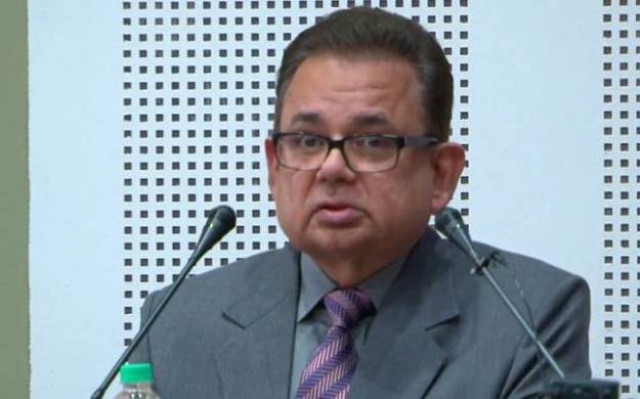Has India's judge at ICJ committed a mistake by expressing his 'delight' on order?
Justice Dalveer Bhandari said he was "delighted that the International Court rose to the occasion”

Justice Dalveer Bhandari was appointed an ICJ judge in 2012 as India’s representative. PHOTO COURTESY: India Today
It is, therefore, a matter of concern that Justice Dalveer Bhandari, the Indian judge on the 11-member bench of the International Court of Justice (ICJ) which is hearing Kulbhushan Jadhav’s case, opted to comment on the merits of the case. It is intriguing that the former Supreme Court judge made the comments even though the matter is still pending final adjudication before a panel of judges, including him.
ICJ stays Jadhav’s hanging till it makes final ruling
In an interview published in The Indian Express newspaper a day after the ICJ stayed execution of Jadhav until its final decision, Bhandari had described the ICJ order as a “hugely satisfying interim pronouncement which is a great diplomatic victory for India”.
ICJ, seated in The Hague, is the judicial wing of the United Nations. It acts as an international umpire in disputes between States. So, the neutrality of those adjudging the contentions is of paramount importance to the nations willing to submit to its jurisdiction.
Jadhav’s is perhaps the most contentious dispute between India and Pakistan at this moment, and it is likely to shape up the course of future diplomacy between the two countries. Politics and diplomacy are playing out at their best while the ICJ endeavours to adjudicate the case on the basis of international laws and conventions.
Bhandari’s comments, in a situation as delicate as this, would have not gone unnoticed and might trigger a controversy.
ICJ can't annul Jadhav's death sentence: Sartaj Aziz
Bhandari, in the interview, said he was “delighted that the International Court rose to the occasion” and “saved a person from the gallows”.
But the law and the jurisprudence calls upon a judge not to be “delighted” by the outcome of a case he is hearing since that shows his personal interest and thus a bias.
A judge can always be satisfied that he was able to discharge his duties as a neutral arbitrator of law and facts, but he is not to be “delighted” by what he decides.
Strangely, even though Bhandari acknowledges that “the larger issues, which have been raised by the dispute, will be taken up by the court after a break,” he goes on to comment upon the facts of the case — something, the ICJ bench has maintained, ought to be examined later.
The former judge, who was appointed an ICJ judge in 2012 as India’s representative, holds the view that “Pakistan unfairly denied consular access”. What more remains to be adjudicated when one of the 11-judge bench at the ICJ has already formed his final opinion in the matter?
Jadhav case: Ex-India SC judge criticises India’s move to ICJ, calls it ‘Pandora’s box'
Consular access is the ultimate relief India has sought by moving the ICJ, which said on Sunday that this request will be considered after the break. Isn’t it a case of clear bias when a judge makes his opinion public while the matter is still sub-judice before him? What is the judicial and objective worth of his “lengthy declaration” before the ICJ on this dispute when he has already expressed his mind?
Bhandari’s statements may be inadvertent or a result of his zeal, but propriety is where it fails completely when a judge comments on a merit of a case still pending before him.
When CNN-News 18 approached Bhandari, his family members responded by saying the former SC judge did not want to comment on the matter because it is still sub-judice. But it was incumbent upon the experienced judge to consider this crucial legal aspect and exercise restraint when he spoke earlier. The damage has already been done.
With Pakistan raising several points to challenge the ICJ’s interim order, Bhandari’s statements in the public domain could be further damaging, and might come handy to the opposite side looking for a reason to call the proceedings vitiated in law.
This article originally appeared on CNN-News18.


















COMMENTS
Comments are moderated and generally will be posted if they are on-topic and not abusive.
For more information, please see our Comments FAQ